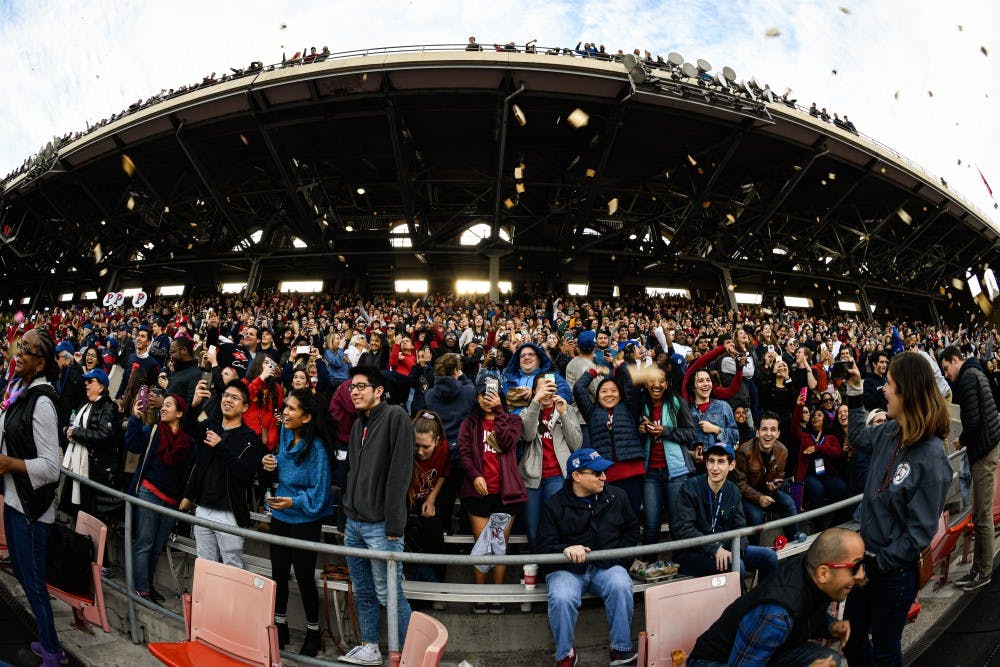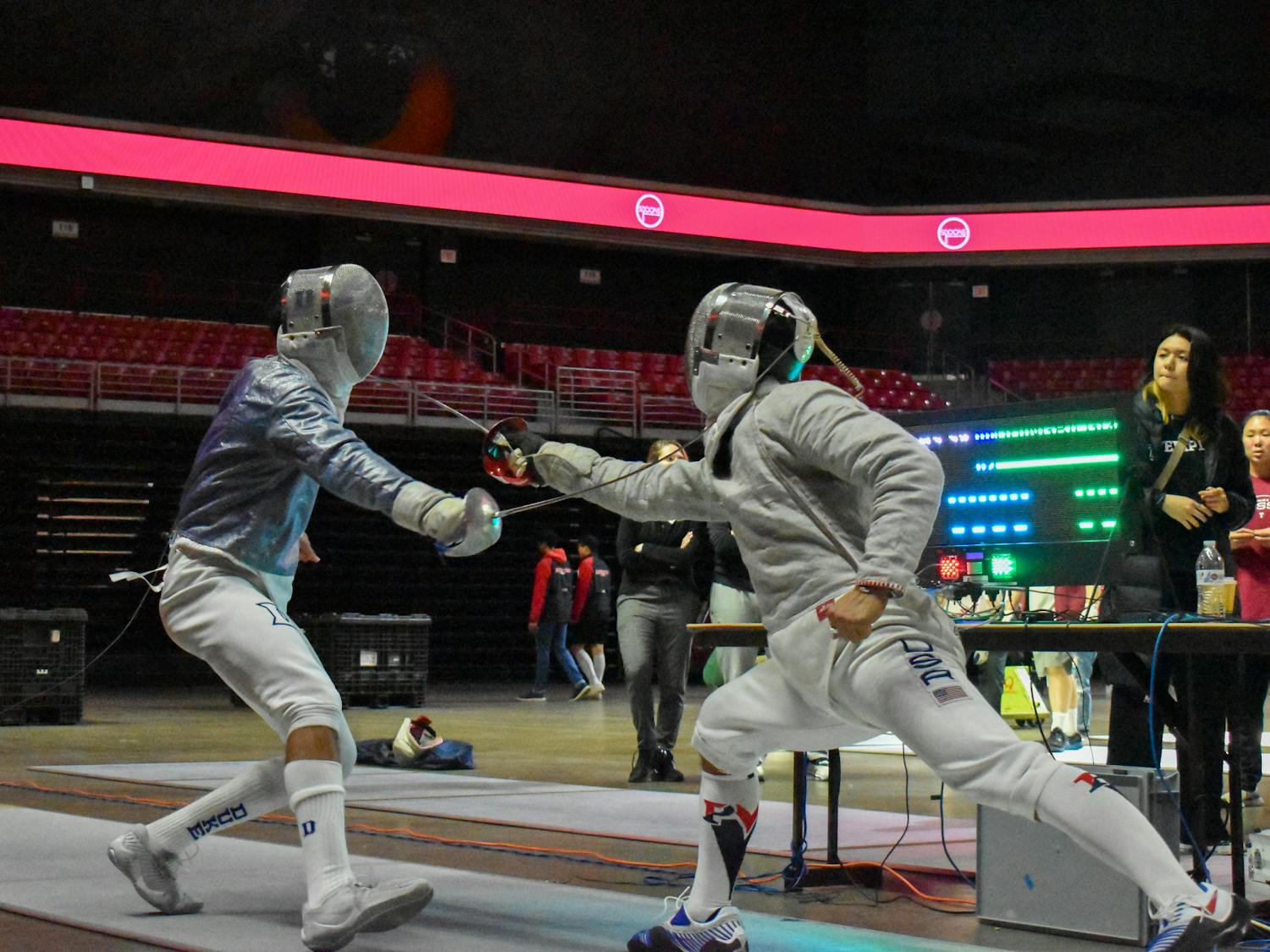The first leaves are turning, signaling the return of one of America's most anticipated sports pastimes: football. A new season is here, filled with the smell of bratwursts, the sound of cheering fans, and the feeling of mesh replica jerseys worn only by the most diehard of fans.
As Franklin Field celebrates 125 years this season, here's a reflection on the Penn football history and traditions that have lasted since its inception and emerged through the decades.
Penn football has lined up more than any other collegiate team
The Red and Blue's football team was founded in 1876, even pre-dating the 1895 construction of Franklin Field. This longevity has resulted in the Quakers competing in 1,393 total games — 856 of which were wins — the most contests played of any college football team across every division. Entering the 2019 season, Penn has played 44 more games than Rutgers, the next closest team and winner of the first ever college football game.
If the Quakers continue to play on a ten-game schedule, as they have for the past few decades, this record will stand for a number of years to come. This one stat symbolizes not only the team's experience but also the history behind the program.
Goalposts make a splash in the Schuylkill
A tradition of tearing down the goalposts at Franklin Field has been in effect ever since the 1960s with drastic evolution along the way.
Currently, goalposts at Penn and around the country are made from a strong steel and aluminum alloy. In the 1960s, when this tradition was at its peak and the goalpost was still at the goal line, the uprights were made of wood. The brittle nature of timber versus steel and aluminum made easy the tradition of tearing down the goalposts after home wins.
The tradition was revived and re-invented even after the stronger posts came into existence in 1984 when Penn went on to win three Ivy League titles in a row. After every championship win, the goalposts were carried to the Schuylkill River and tossed in by the student body. It was at this time that the students decided only the most coveted of wins — an Ivy League title — warranted tearing down the posts, instead of every home win.
A few more major instances of goalposts splashing into the Schuylkill occurred, including the 1994 championship that left multiple students and police officers injured. Now, Penn police and security have taken extra precautions, including threatening arrest to students who attempt to climb on and tear down the goalposts. However, the tradition still lives on in the hearts of the new generation of Penn fans waiting for their chance at goalpost glory.
Make a Toast to Penn … But With Actual Toast?
G.B. Brigham made his way into Penn lore with his 1901 song "Drink a Highball." For many years the song has rung through the hallowed grounds of Franklin Field. In the past, patrons would raise the mixed drink (termed a "Highball") at the end of the third quarter of home football games. However, alcohol was banned from the stadium in the 1970s.
The response of throwing toast on the field was not a direct result of disappointment by the student body that the stadium was dry. In reality, a group of students attended a film where toast throwing symbolized making an actual toast. This group threw toast at the next home game after "Drink a Highball," and the rest is history. Toast throwing has symbolized unity in the past across the student body and can even contribute to higher attendance at home games with the allure surrounding this unique tradition.
When one revels in thoughts around iconic football stadiums, "The Shoe" at Ohio State, "Death Valley" at Clemson, and "The Big House" at Michigan come to mind. However, new inspirations come from longtime icons, and Franklin Field should be designated "The Granddaddy of Them All," as the stadium was the first collegiate football stadium ever constructed. The field has been home to the Army-Navy game, the Philadelphia Eagles, and even the place where televised football was born.
From its opening 125 years ago to the present day, Franklin Field will always have a place in the college football history books.









